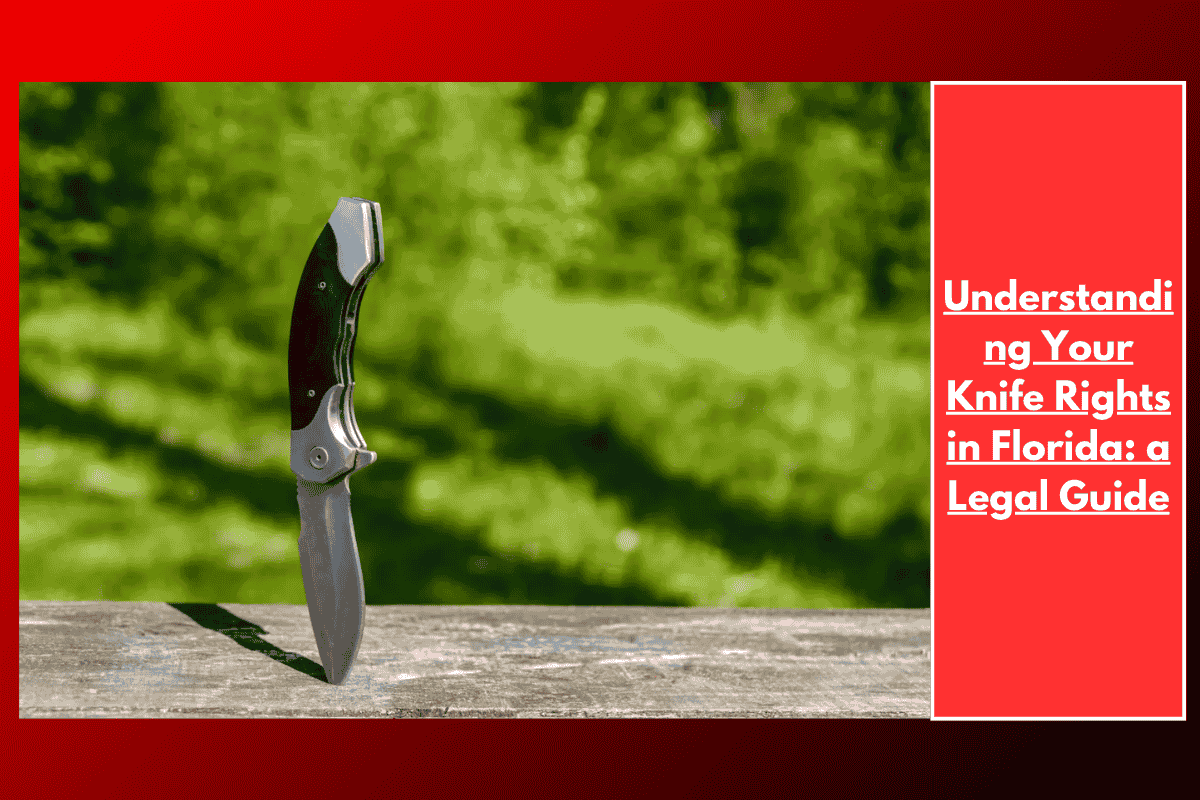In Florida, as in many other states, the laws surrounding knife ownership, carry, and use can be complex and vary depending on the type of knife, its intended use, and where it’s carried. Whether you’re a knife enthusiast, a collector, or just someone looking to understand your rights, it’s essential to be familiar with Florida’s knife laws to avoid legal trouble. This guide will help break down the key points regarding knife ownership and use in the Sunshine State.
Knife Ownership in Florida
In Florida, there are no significant restrictions on owning a knife. As long as you’re a lawful citizen, you are permitted to possess various types of knives, including folding knives, hunting knives, and even some automatic-opening or switchblade knives. There are no general state-level restrictions on possessing knives, meaning that it is legal for Florida residents to own knives as long as they do not fall under other categories like illegal weapons.
However, there are certain regulations that come into play depending on the type of knife and its intended use. For example, a knife used for self-defense or as a weapon could raise legal issues depending on the context in which it’s used.
Concealed Carry of Knives
Carrying a concealed knife in Florida has specific regulations that differ from open carry laws. Concealed carry refers to carrying a knife in a way that it is hidden from plain view, either on your person or in a bag or other container.
Under Florida law, it is generally illegal to carry a concealed knife unless you have a concealed weapons permit. This includes knives with a blade longer than 4 inches, which could be considered a weapon when carried in certain ways. It’s important to note that concealed carry laws can vary depending on local ordinances, so it’s always a good idea to check with local authorities before carrying a concealed knife in specific locations.
Open Carry of Knives
Unlike concealed carry, open carry is more permissive in Florida. In many cases, you are allowed to openly carry a knife, as long as it’s not concealed or being used in a manner that could be perceived as threatening. However, there are exceptions, particularly in certain areas where carrying knives may be prohibited.
Open carry laws typically allow for knives such as pocket knives or folding knives, but the length of the blade and the way the knife is carried are important factors. If the knife is carried in a manner that could suggest you are intending to use it as a weapon or if it’s a large knife (like a machete), you could face legal issues.
Prohibited Knives in Florida
While knife ownership and carrying are largely permitted, there are specific types of knives that are illegal to possess or carry in Florida. These include:
Switchblades/Automatic Knives: A switchblade, or automatic knife, is a knife with a blade that opens automatically via a spring mechanism when a button or lever is activated. These knives are legal to own in Florida but are subject to restrictions on carrying them in certain situations.
Balisongs (Butterfly Knives): Florida law allows the possession of balisongs, but their use in public places can be problematic, particularly if it’s deemed to be used in a threatening manner.
Undetectable Knives: These are knives made from materials that cannot be detected by metal detectors, such as plastic or ceramic. These knives are illegal to carry.
Carrying Knives in Specific Locations
In addition to general ownership and carry laws, there are restrictions on carrying knives in certain locations in Florida. For example, knives are prohibited in places like:
Schools: It is illegal to carry knives on school grounds.
Government Buildings: Carrying knives into government buildings or courts is also prohibited.
Private Property: Property owners or businesses may set their own rules regarding knives, so it’s important to respect private property rules.
Always be aware of the laws in specific locations, especially when traveling within Florida, as local ordinances might differ from state law.
Self-Defense and Knife Use
Florida follows a Stand Your Ground law, which allows individuals to use force in self-defense if they reasonably believe they are in imminent danger. This can extend to the use of knives in certain circumstances, but it is important to remember that the use of a knife in self-defense must be reasonable and proportionate to the threat. Using a knife in an unjustified or excessive manner could result in criminal charges, such as aggravated assault or manslaughter.
Knife Sales and Transfers
When it comes to selling or transferring knives, Florida does not impose significant regulations. As long as the knife is legal to possess, you are generally free to sell or transfer ownership to others. However, if you’re selling knives to minors (under the age of 18), be aware that this could be subject to legal scrutiny, especially if the knives are of a type that could be considered a weapon.
Understanding your rights regarding knives in Florida is essential to ensure that you’re in compliance with state laws. While owning and carrying knives is largely legal in Florida, certain restrictions apply to concealed carry, the type of knife, and specific locations. It’s crucial to stay informed about the laws and local ordinances to avoid legal complications. If in doubt, it’s always best to consult with a legal expert to ensure you’re adhering to the regulations. Whether you’re an avid collector, a responsible knife owner, or simply want to understand Florida’s knife laws, this guide offers key insights into your rights.
SOURCES
[1] https://www.thelawofwe.com/what-knives-are-illegal-in-florida/
[2] https://www.salazarandkelly.com/understanding-floridas-knife-laws/
[3] https://www.couteaux-morta.com/en/knife-laws-in-florida/
[4] https://www.battlbox.com/blogs/carry-laws/is-it-legal-to-open-carry-a-knife-in-florida
[5] https://www.thedensonfirm.com/weapon-charges/florida-knife-laws-everything-you-need-to-know/














